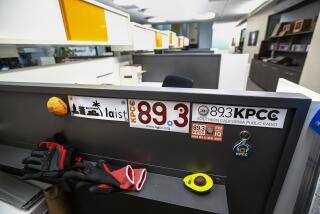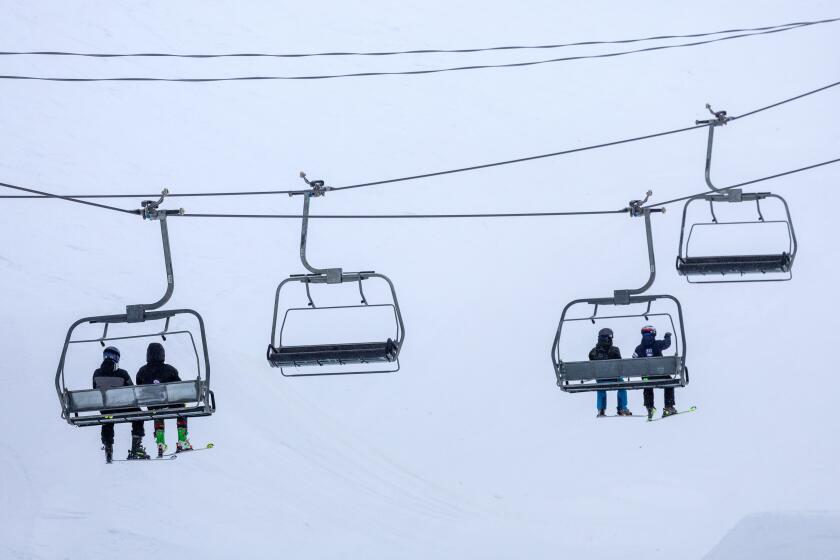Pac Bell Workers Reach Out, Touch Off a Scandal : Contest: Employees used confidential information to gain an edge in radio station’s $1,000
- Share via
Last month, when Los Angeles radio station KRTH-101 announced it would pay $1,000 to the seventh caller every time a jingle was played, 30 to 40 people out there in listenerland figured out a way to beat you to the bank.
These weren’t your typical oldies fans with speed dialing.
They were Pacific Bell employees who used confidential customer information to cut the time it took to ring the station’s 800 number, Pac Bell spokeswoman Kate Flynn said Friday.
“We’re still investigating what happened,” Flynn said. “About the only thing I can say, for security reasons, is that they had access to some proprietary information that allowed them to gain an edge to win.”
She said between 30 and 40 employees from several offices were involved. But she declined to identify just how many had actually won $1,000 prizes. Pacific Bell was tipped off to the scheme by an employee, she said.
“This seemed to get around by word of mouth,” she said. “Not every employee involved in this seems to have had the same level of culpability. Not all appeared to have known that there were longstanding company policies against using company records for such purposes.”
She declined to give details as to whether the employees were working together or individually. Some of the winning calls were made from work, she said.
On Friday, Pac Bell officials met with the radio station’s general manager to determine how many of the more than 400 winners in the contest were employed by the phone company. After the meeting ended late Friday, neither the station nor the phone company would disclose the number involved.
KRTH General Manager Pat Duffy said none of those employees will receive checks, and their winnings will be “re-given away.”
Pac Bell has informed the Public Utilities Commission of the problem and is conducting an internal investigation, Flynn said. The investigation will end next week, when some employees may be suspended or dismissed, she said.
She described the scheme as an “isolated instance” and said she knew of no other case in the telephone system where employees had used proprietary information to gain an advantage in a telephone call-in.
“We enhanced our safeguards to protect access to the information that the employees were using to gain an edge,” Flynn said. “I want to stress that this is not a widespread problem and that it is totally contrary to longstanding Pacific Bell policy.”
The contest began the first week of March, when the oldies station began giving away $1,000 each hour after a jingle was played. On March 23, Pacific Bell officials informed the station they had uncovered a scheme giving employees an edge in the contest.
“They were extremely embarrassed and sensitive about this,” Duffy said. “When they came to me, they didn’t tell me the details, but they said they had already changed what they needed to change so this couldn’t happen again.”
The radio station provided Pac Bell a list of its winners and their Social Security numbers for the phone company to check against its employee list.
Radio station call-in contests are routinely used by stations seeking to increase their number of listeners. Since the advent of speed dialing features on telephones, many stations no longer give prizes to the first caller. However, station managers say they are constantly seeking ways to avoid rewarding listeners who set up phone banks or other systems to capitalize on the call-in contests.
“I’ll be darned,” Ken Wolt, president and general manager of KTNT and KLVE, which frequently have call-in contests. “Maybe we just don’t have enough safeguards to protect ourselves against the advancements of the computer age. For every system we invent, it seems somebody comes up with a way around it.”
More to Read
Sign up for Essential California
The most important California stories and recommendations in your inbox every morning.
You may occasionally receive promotional content from the Los Angeles Times.










